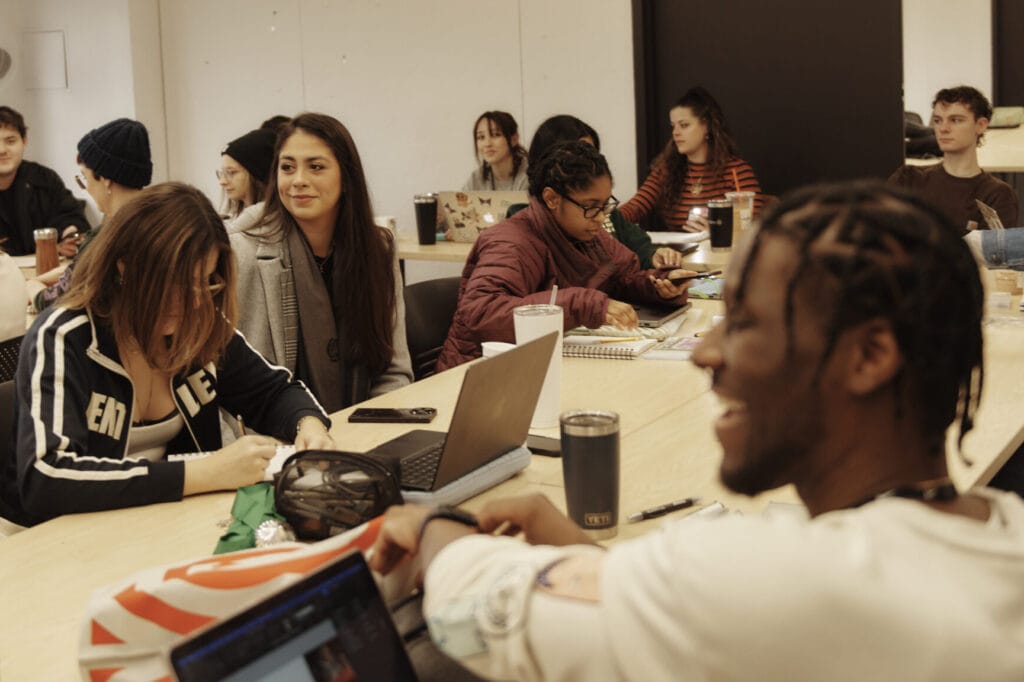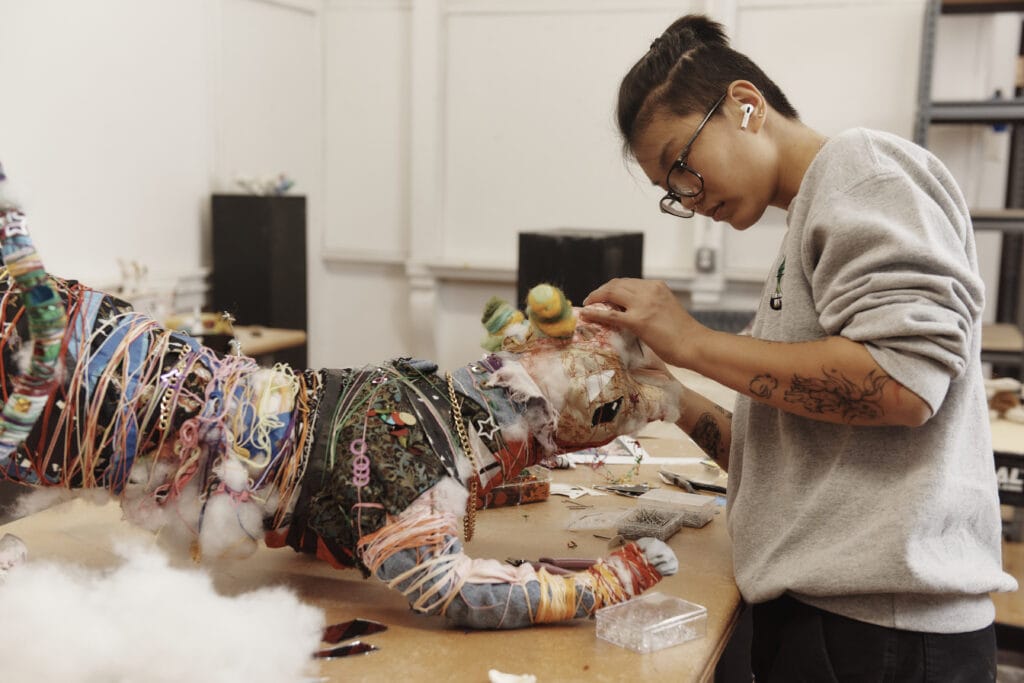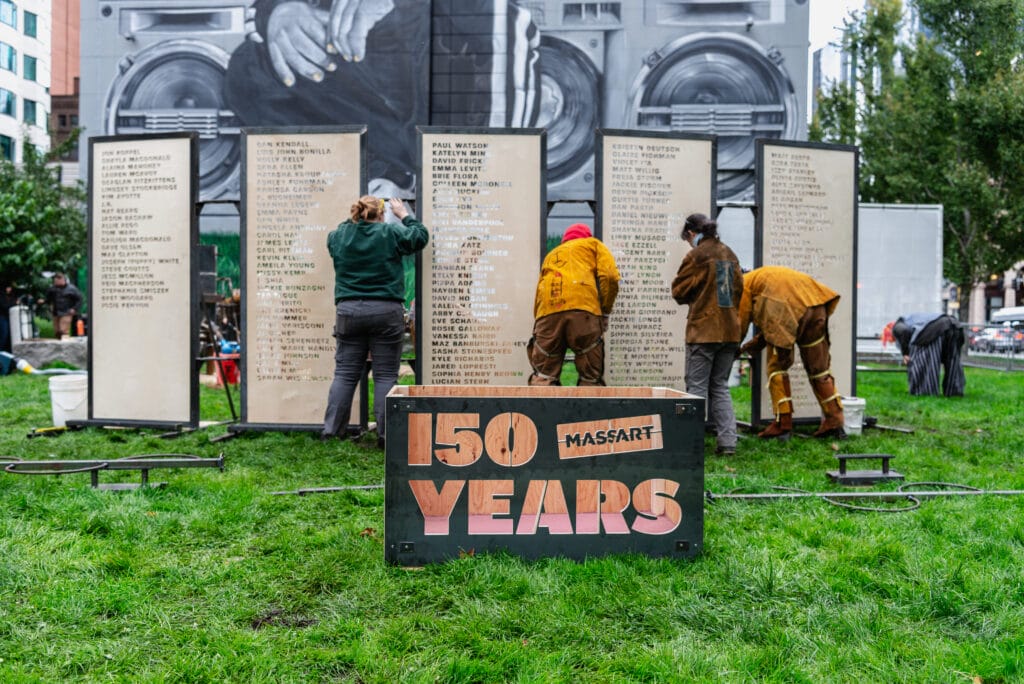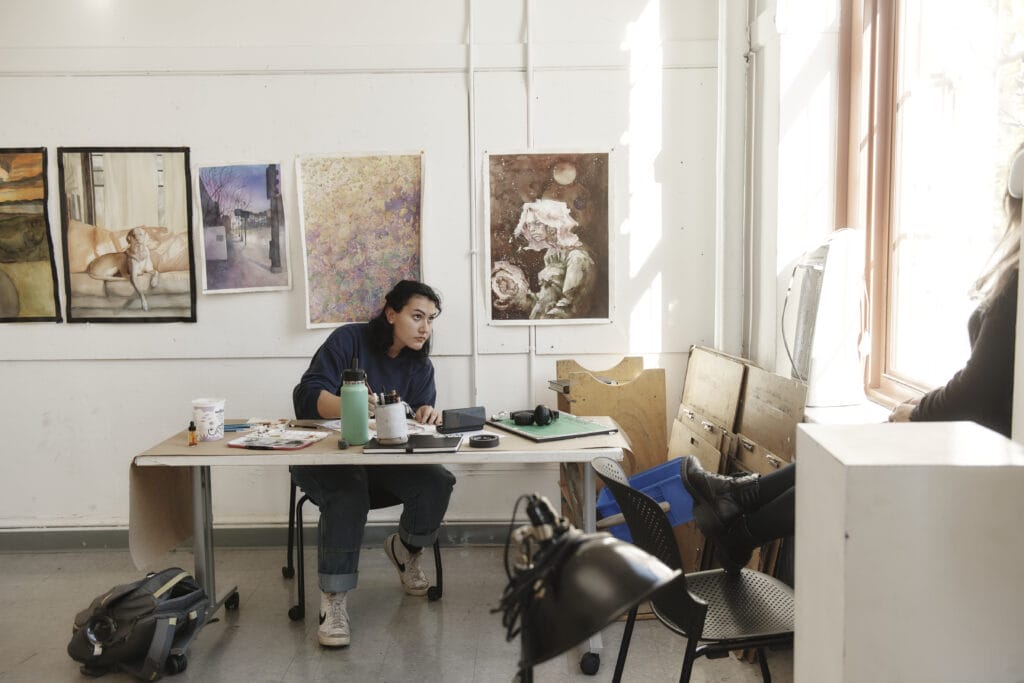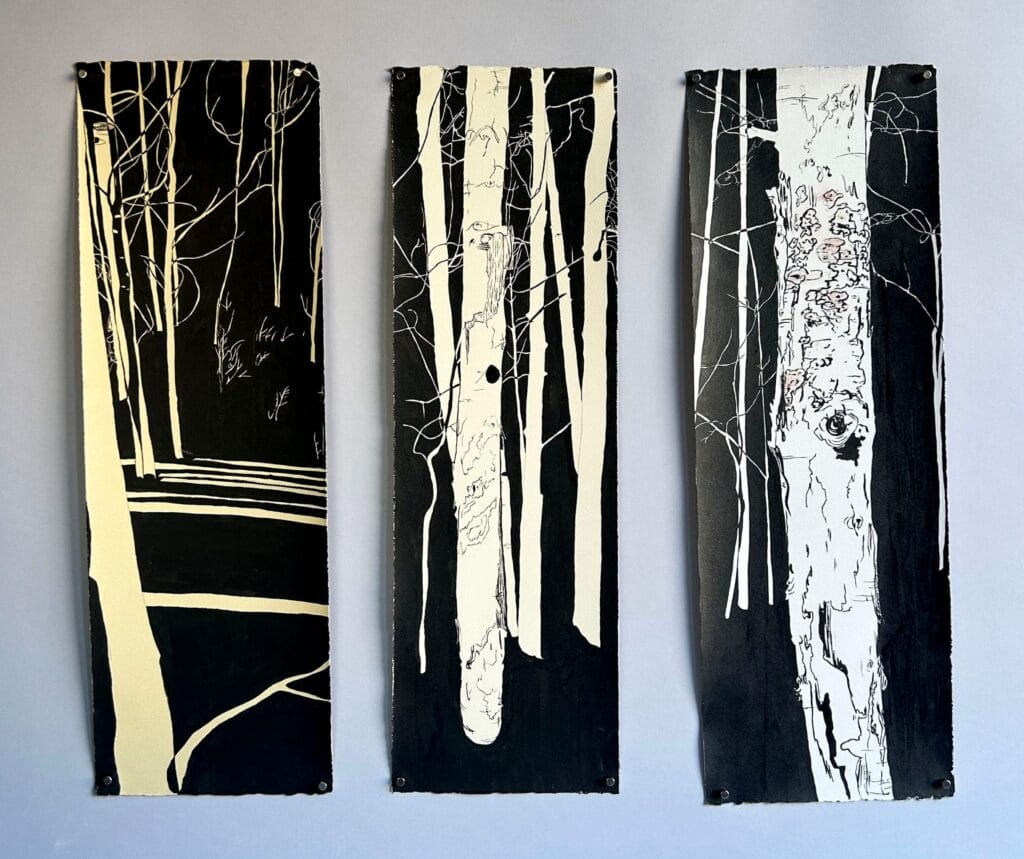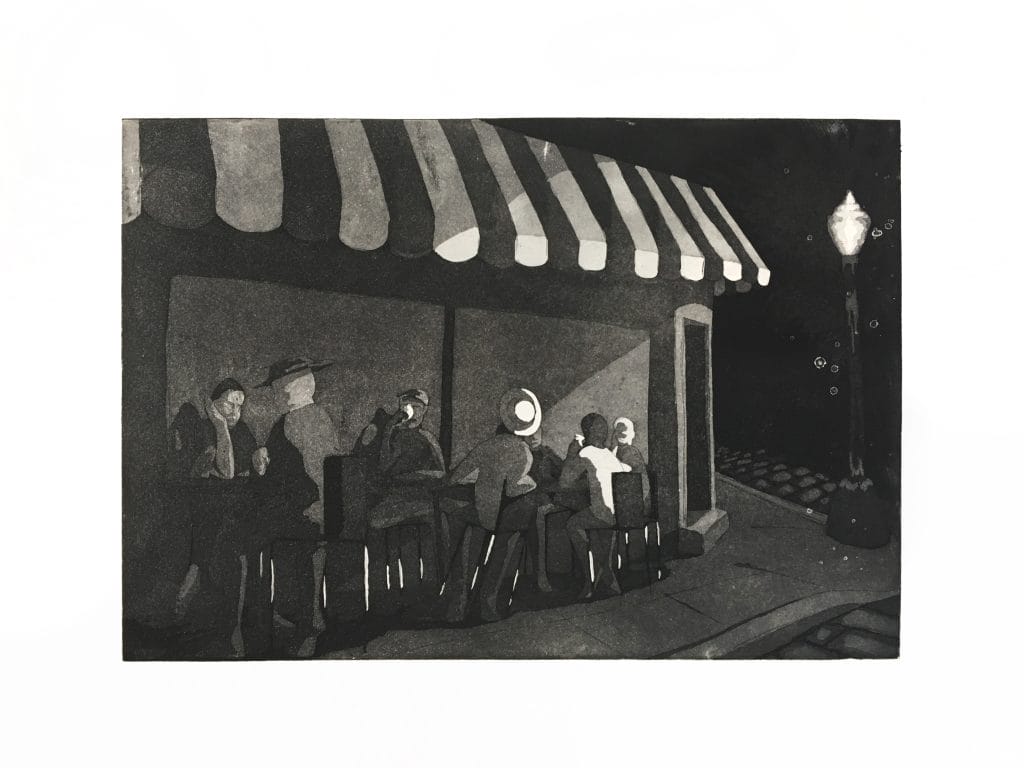Each spring, you’ll work closely with a world-class visiting artist through the Master Print Program, developing a shared concept that evolves into finished artwork. You’ll also engage with contemporary voices through the Fine Arts department’s Visiting Lecture Series, which brings eight renowned artists to campus each academic year.
MassArt Printmaking also hosts the annual Iron Print Competition in collaboration with the Boston University, Rhode Island School of Design, and School of the Museum of Fine Arts.
Printmaking Events
